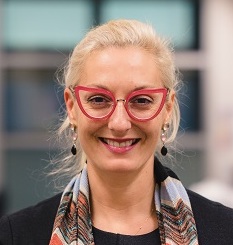Australian neurologists with an interest in multiple sclerosis were among almost 9,000 participants attending the 38th Congress of the European Committee for Treatment and Research in MS (ECTRIMS 2022) in Amsterdam from 26-28 October.
Described as the world’s largest congress for research into the pathogenesis, diagnosis and treatment in multiple sclerosis and related neurological disorders, ECTRIMs had more than 240 speakers delivering results from 1,700 research projects,.
This limbic summary provides an overview of some of the key highlights from Australian clinicians and researchers at ECTRIMs.
AHSCT comparable to immune reconstitution therapies
Professor Tomas Kalincik head of the Clinical Outcomes Research (CORe) Unit at the University of Melbourne and co-head of the Multiple Sclerosis and Neuroimmunology Service at the Royal Melbourne Hospital presented findings from a study comparing the effectiveness of autologous haematopoietic stem cell transplantation (AHSCT) with immune reconstitution therapies in relapsing-remitting MS.

The multinational study involving patients with highly active MS and moderate disability was study conducted across six MS centres in Australia, Canada, Sweden, Norway and the UK. It used propensity scores to match patients based on sex, age, disability score (EDSS), number of relapses 12 and 24 months before baseline, time from MS onset, the most effective prior therapy and country.
Participants had high mean disease activity (>0.9 relapses in the prior year), mean EDSS 3-4.5, and follow-up of two to three years.
The results showed that alemtuzumab (n=284) and AHSCT (n=122) were associated with similar annualised relapse rates (ARR, mean ±SD 0.13±0.31 vs. 0.11±0.35), risk of relapses (hazard ratio 0.79, 95%CI 0.46-1.37), similar risk of EDSS worsening (hazard ratio 0.82, 95%CI 0.33-2.03) and EDSS improvement (hazard ratio 1.07, 95%CI 0.74-1.57). Similarly, cladribine ( n= 173) and AHSCT (n= 65) were associated with similar ARR (0.16±0.48 vs. 0.10±0.38), risk of relapses (0.63, 0.22-1.77), EDSS worsening (0.51, 0.08-3.14) and EDSS improvement (1.24, 0.44-3.78).
However compared to mitoxantrone (n= 91), AHSCT (n= 30) was associated with lower ARR (0.35±0.74 vs. 0.17±0.57) and a corresponding trend for the risk of relapses (0.48, 0.18-1.28), but there was no evidence for difference in disability outcomes.
“Further comparison of AHSCT to these therapies in cohorts and trials over extended time is warranted,” the researcher concluded.
Vitamin D supplements don’t prevent onset of MS
Professor Helmut Butzkueven of Monash University, Melbourne presented results from a randomised controlled trial showing that vitamin D supplementation does not prevent MS development after high-risk clinically isolated syndrome (CIS).

Prof Butzkueven, who is also Head of MS and Neuroimmunology at the Alfred Hospital, presented findings from the PREVANZ phase 2b placebo controlled double blind which enrolled 204 patients from MS centres in Australia and New Zealand who were randomised to receive placebo or doses of 1000, 5000 or 10000 IU of oral vitamin D3 daily after CIS. Participants did not receive any other MS disease modifying therapy.
When followed for up to 48 weeks, there was no difference between groups in the primary primary outcome of time to MS conversion as assessed by 2010 McDonald criteria (i.e. confirmed relapse or new Brain MRI T2 lesion).
After adjusting for factors such as latitude, smoking, age, sex and baseline measure of mono or polysymptomatic onset, presence of infra-tentorial lesions,and prior use of steroids, the Odds Ratios (OR_ for MS conversion compared to placebo (1.00) were: 1000 IU, 0.48 (0.18, 1.27); 5000 IU, 2.49 (1.02, 6.08); and 10000 IU 1.10 (0.40, 3.04).
Similar negative findings were reported from a US study presented at ECTRIM 2022.
A clinical trial at Johns Hopkins University found no evidence that vitamin D supplements had any effect on MS activity in people with relapsing-remitting MS who were taking daily injections of glatiramer acetate.
The 140 people in the trial received either high doses (5000 IU per day) or low doses (600 IU per day) of vitamin D but after follow up for almost two years there was no difference in relapses and MRI-detected brain lesions.
Omicron Covid vaccine responses attentuated with DMTs
A study led by Associate Professor Fabienne Brilot-Turville of the University of Sydney study confirmed that disease-modifying therapies (DMT) attenuate the vaccine response to COVID-19 in people with MS.
 The researchers investigated spike antibodies to SARS-CoV-2 in 292 MS patients and 489 health worker controls.
The researchers investigated spike antibodies to SARS-CoV-2 in 292 MS patients and 489 health worker controls.
They found that at one month after receiving the second vaccine dose, Spike antibody levels were 67,224± 101,251 in the seroconverted MS group compared to 145,510± 99,669 in controls. Patients with MS who did not seroconvert at one and months were treated with ocrelizumab (n=22), cladribine (n=1), fingolimod (n=4) and siponimod (n=1).
When looking at variants of concern in the Delta and Omicron BA1 COVID-19 waves, the researchers found that antibody immunoreactivity was decreased by 70% against Delta Spike and 90% for Omicron BA1 Spike compared to the original clade A Spike. They also showed that DMTs, such as ocrelizumab, fingolimod and ofatumumab decreased the antibody binding to Delta and Omicron Spike.
Nevertheless, the pattern of antibody recognition was similar between the three Spikes and all DMTs analysed, i.e. alemtuzumab, natalizumab, teriflunomide, and interferons.
“Some DMTs reduce Spike antibody titres or prevent seroconversion. The sequence of Spike used in the first generation of vaccines may need to be updated for emerging variants of concern,” they concluded.